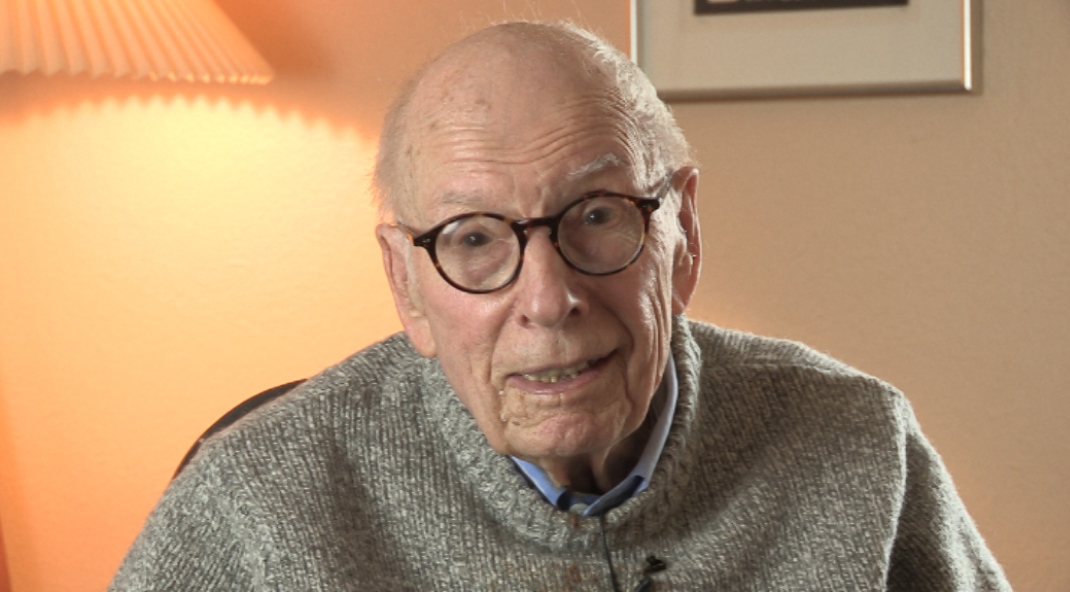NEXT STORY

What’s special about slime molds?
RELATED STORIES

NEXT STORY

What’s special about slime molds?
RELATED STORIES


|
Views | Duration | |
|---|---|---|---|
| 51. Notable scientist friends | 69 | 03:42 | |
| 52. A memorable meal | 57 | 03:08 | |
| 53. The brilliant JBS Haldane | 266 | 01:15 | |
| 54. Discovery of cyclic AMP creates a stir | 46 | 04:10 | |
| 55. Progress in experimental biology | 23 | 03:36 | |
| 56. Is my kind of biology ‘dead wood’? | 48 | 02:24 | |
| 57. If not slime molds, then what? | 34 | 01:15 | |
| 58. Natural selection in small organisms | 27 | 02:00 | |
| 59. What’s special about slime molds? | 43 | 01:48 |

What possesses me now is sort of fairly big questions that are connected with evolution. And one of the things that I've been working on, and in fact just published, is something to do with the natural selection being different for small organisms, unicellular organisms and similar small ones. And they respond differently to natural selection. And I have lots of evidence for this and not very much interest in it among others, but that's okay. It's the idea that if you have an elephant or a horse or anything big, ourselves, or a tree that natural selection can work on all aspects of it, so it's a big canvas that it has to work with. But if you have amoebae in the soil, then that's not the case where you either can exist or can't exist, that's what it amounts to. And I think that that has big consequences, in terms of the whole evolution of bigger forms. But I'm a voice in the wilderness.
John Tyler Bonner (born in 1920) is an emeritus professor in the Department of Ecology and Evolutionary Biology at Princeton University. He is a pioneer in the use of cellular slime molds to understand evolution and development and is one of the world's leading experts on cellular slime molds. He says that his prime interests are in evolution and development and that he uses the cellular slime molds as a tool to seek an understanding of those twin disciplines. He has written several books on developmental biology and evolution, many scientific papers, and has produced a number of works in biology. He has led the way in making Dictyostelium discoideum a model organism central to examining some of the major questions in experimental biology.
Title: Natural selection in small organisms
Listeners: Christopher Sykes
Christopher Sykes is an independent documentary producer who has made a number of films about science and scientists for BBC TV, Channel Four, and PBS.
Tags: evolution, natural selection, unicellular organisms, survival
Duration: 2 minutes
Date story recorded: February 2016
Date story went live: 14 September 2016